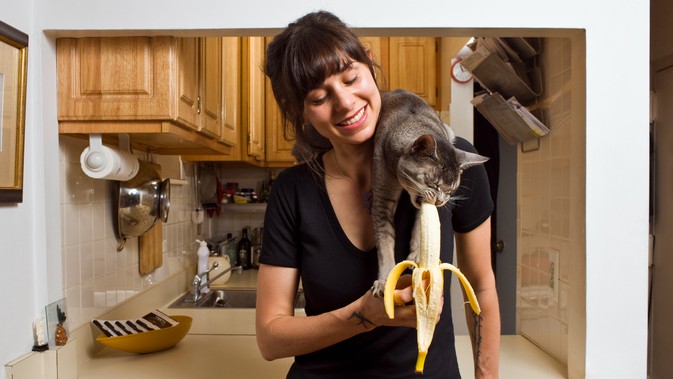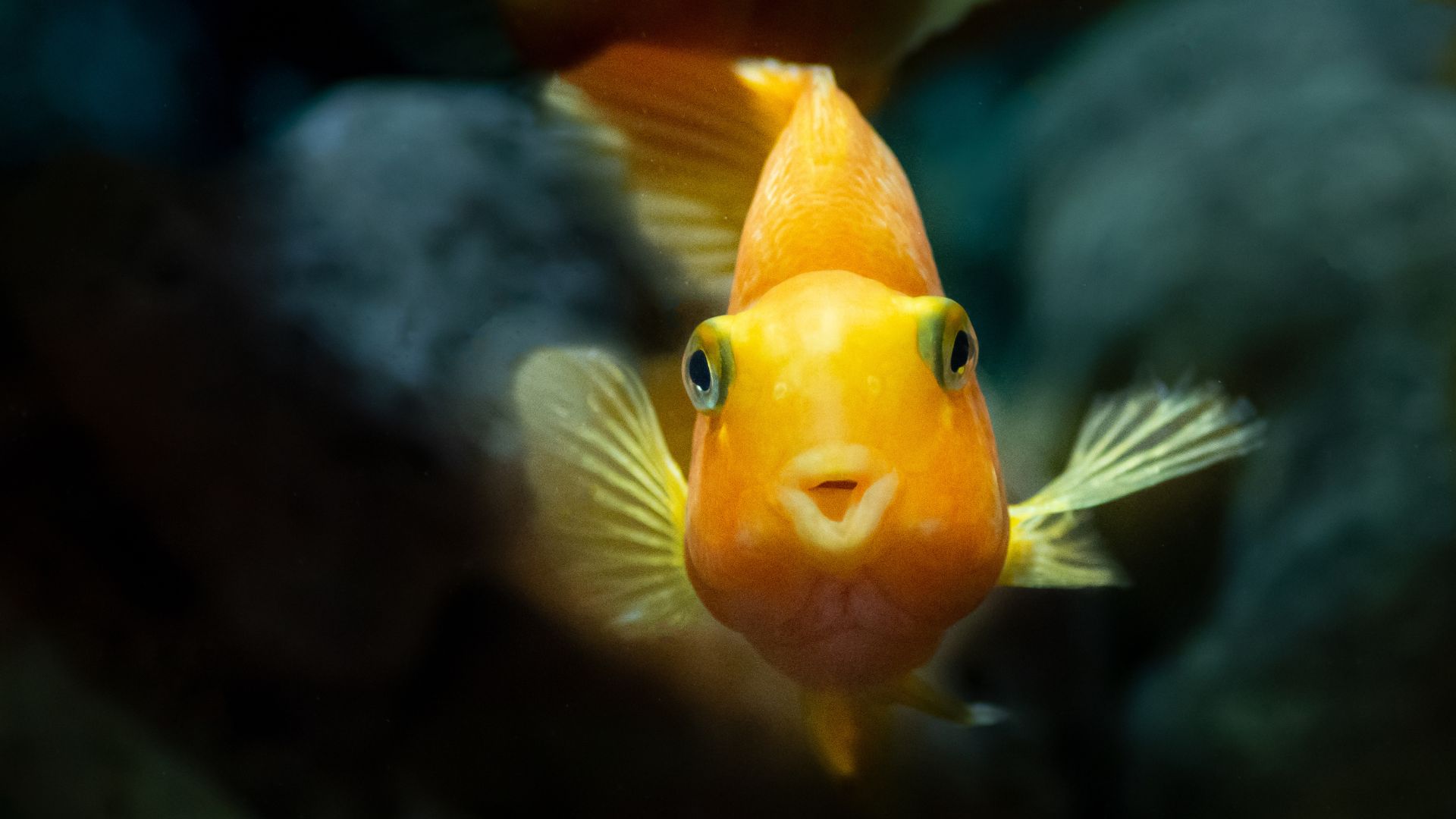Can cats eat bananas?
They’re enjoyed by monkeys and minions alike but can cats eat bananas? Find out…

Cat owners often wonder which cat treats are healthy so the question “can cats eat bananas?” is quite commonly asked. Even in cats fed the best cat food, occasional treats can add a bit of variety to their diet and strengthen the bond they have with their human. It is important to keep in mind, however, that there are some human foods that are poisonous to cats.
Bananas are a good source of vitamin C, magnesium, potassium, vitamin B6, folate, and fibre in humans. But are they good for cats? Let’s take a closer look.
Are bananas good for cats?
Whether bananas are good for cats and whether they are safe for cats are two different questions. As obligate carnivores, cats derive all of their required nutrients from meat—this is why cats cannot be vegan. Because cats lack the enzyme required to digest plant-based foods, they do not receive the same benefits from consuming bananas as humans, other than the dietary fibre.
That being said, banana is safe to feed to cats in limited amounts. Small bite-sized pieces (around the size of your cat’s kibble) can be offered—this is not advisable on a regular basis, however, due to the high sugar content of bananas. In addition, cats are notoriously picky eaters who cannot taste sweetness, so they may turn their nose up at any banana presented to them.
When are bananas bad for cats?
Although bananas are not toxic to cats, they can cause issues when fed in excess. Because bananas are high in sugar, feeding them can cause gastrointestinal upset, including vomiting, diarrhoea, abdominal pain, and flatulence. In addition, feeding too much can predispose your cat to conditions like diabetes and obesity (or make them worse if your cat has them). If your cat has any medical conditions, you should consult your veterinarian before attempting to feed them banana.
Like humans, cats can be allergic to bananas, though this is rare. If your cat shows any signs of an allergic reaction such as a skin rash, discharge from the eyes or nose, rubbing or scratching the face, facial swelling, or difficulty breathing, veterinary attention should be sought immediately.
Lastly, banana peels should always be kept away from your cat. They contain ethyl acetate, which smells horrible to cats, and they cannot be digested. Peels are also a choking hazard!
Tips on feeding your cat bananas
If your cat is getting bored of the best cat treats from the pet store, then bananas can be a good substitute. There are plenty of recipes for homemade cat treats, but here are a few quick suggestions that use bananas:
- Offer a small bite-sized piece of banana (the size of their kibble or normal treats) to see how your cat reacts to it
- Mash a thin slice of banana until it has a mushy consistency and place in a bowl separate from your cat’s normal food
- Freeze several bite-sized pieces of banana and offer a few by hand or in a bowl or puzzle feeder
Conclusion
Although bananas are healthy snacks for humans, they are not very nutritious for cats. The additional dietary fibre can provide some benefit, but it can also result in tummy upset in excess. Small bites can be safely fed as occasional treats, but there is no guarantee that picky felines will show any interest!
Read more:
PetsRadar Newsletter
Get the best advice, tips and top tech for your beloved Pets
Dr. Diana Hasler graduated with distinction from the University of Edinburgh Royal (Dick) School of Veterinary Studies in 2018. She has experience working as a small animal veterinarian in general practice, where she has treated many dogs, cats, rabbits, and rodents. She has also recently branched out into the field of medical communications, doing freelance work as a medical editor and writer. Dr. Hasler currently lives in Edinburgh where she enjoys spending time with her husband Gavin and playing with their feisty tabby cat Poppy.

